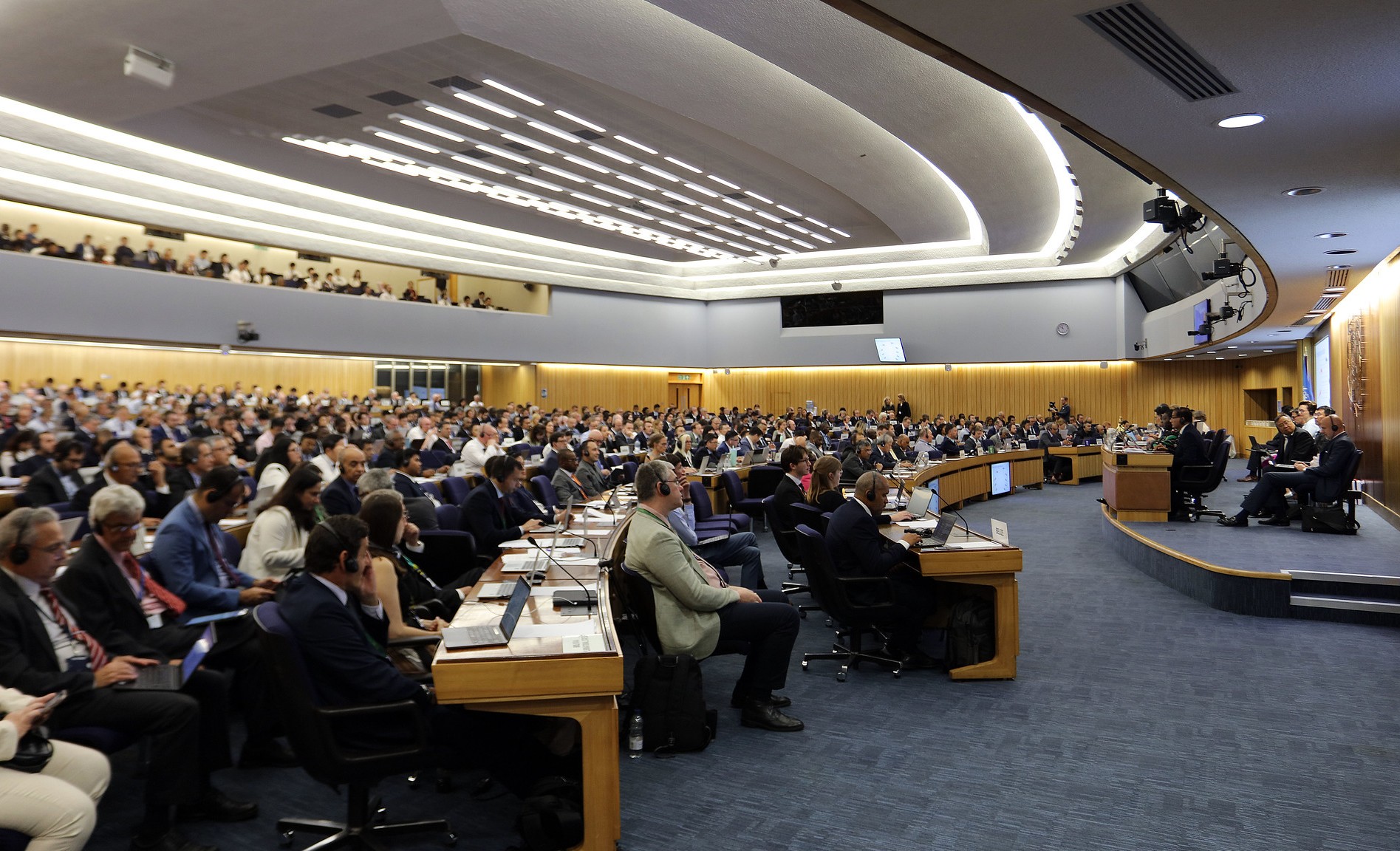IMO's Maritime Safety Committee seeks stronger compliance with global safety management standards to protect crew welfare

The Maritime Safety Committee met in London from 18 to 27 June.
The International Maritime Organization (IMO) is taking action to ensure that ships worldwide are safely managed and operated, with a renewed focus on seafarer issues such as work and rest hours, fatigue, and violence and harassment, including sexual harassment, bullying and sexual assault.
Meeting in London for its 110th session (18 - 27 June), the IMO's Maritime Safety Committee focused on improving implementation of the International Safety Management (ISM) Code. The Code sets the global standard for safe management and operation of ships and for pollution prevention.
The Committee agreed to carry out a comprehensive revision of the IMO guidelines on implementing the ISM Code, both for Administrations and for companies. It also decided to strengthen the consistent enforcement of the Code, with support from port State control and by updating related IMO guidelines.
This initiative seeks to address identified gaps in the Code's application, while taking into account a series of recommendations outlined in an independent study commissioned by the IMO Secretariat in the previous year, on the effectiveness and effective implementation of the ISM Code.
The revision of the implementation guidelines of the ISM Code will be carried out by the Sub-Committee on Implementation of IMO Instruments (III), in association with the Sub-Committee on Human Element, Training and Watchkeeping (HTW) over three years till 2028.
Addressing violence and harassment on ships
The revision of the guidelines on the implementation of the ISM Code is also intended to address key recommendations for Administrations and shipping companies related to the prevention of violence and harassment on board ships, including sexual harassment, bullying and sexual assault. These include:
- Incorporating policies into safety management systems to prevent, report, respond to, and document, cases of violence and harassment, including sexual harassment, bullying and sexual assault, with provisions for victim care, protection against retaliation, and clear safety management objectives including risk assessment and safeguards.
- Ensuring safety management systems compliance with all mandatory regulations, including national laws on violence and harassment, and that guidance from relevant industry bodies is observed.
- Assigning clear responsibilities to a company's senior management and maritime administrations for addressing reported cases, and providing adequate resources for onboard and shoreside response, including access to medical and mental health support for victims.
- Providing training and familiarization for seafarers and designated shoreside personnel on company policies and their implementation.
These recommendations were developed by the Joint IMO/ILO Tripartite Working Group to Identify and Address Seafarers' Issues and the Human Element (JTWG).
Hours of work and hours of rest
In addition, the Committee prioritized its work to tackle fatigue and hours of work and rest, by conducting a scoping exercise of relevant legal instruments that may help to address imbalances between workload and crewing levels, and to protect the well-being of seafarers.
In this regard, the Committee instructed the HTW Sub-Committee to take on the work of analysing IMO provisions related to the above-mentioned matters. The HTW Sub-Committee, in association with the III Sub-Committee, will work on this over two years (2026-2027), and consider the recommendations emanating from the study on the ISM Code, related to a holistic review of instruments dealing with resources and personnel.
The study, conducted by a panel of experts during 2023 and 2024, includes a range of recommendations, such as reviewing the ISM Code to introduce a complaint procedure for reporting non-compliance, strengthening the master's authority to escalate breaches of the ISM Code with protection, and embedding a safety culture, as an objective, on ships.
The Committee noted the ongoing comprehensive review of the International Convention on Standards of Training, Certification and Watchkeeping for Seafarers (STCW Convention), where a gap in regulations on hours of rest in the STCW Convention and Code was also identified and is expected to be addressed as part of the comprehensive review.
Other MSC outcomes
Aside from seafarer matters, the Maritime Safety Committee covered a wide range of key issues related to the safety and security of international shipping. Key developments were made in the following areas:
- Towards regulating autonomous ships: Considerable progress in the drafting of the non-mandatory Code for Maritime Autonomous Surface Ships (MASS), with 24 out of 25 chapters finalized. The Road Map on development of the MASS Code has been updated.
- GHG fuel safety regime: The Committee continued its work to develop safety regulations for ships using new technologies and alternative fuels to support the reduction of greenhouse gas (GHG) emissions, including initiating work to review the IMO Code of Safety for Nuclear Merchant Ships (Nuclear Code).
- Maritime security: The Committee adopted a resolution on Encouragement of maritime information-sharing through the use of national and regional maritime information-sharing centres to enhance maritime safety and security.
- Cyber-security: The Committee endorsed the development of a non-mandatory cybersecurity Code and invited interested Member States and international organizations to submit proposals on a new output in this regard to MSC 111;
- Pilot transfer arrangements: The Committee adopted amendments to the SOLAS Convention and related instruments to strengthen safety-related requirements for pilot transfer arrangements, including mandatory performance standards.
A full meeting summary will be provided in due course.
Links
- Photo gallery
- Secretary-Generals opening remarks/ closing remarks
- MSC 110 meeting preview






